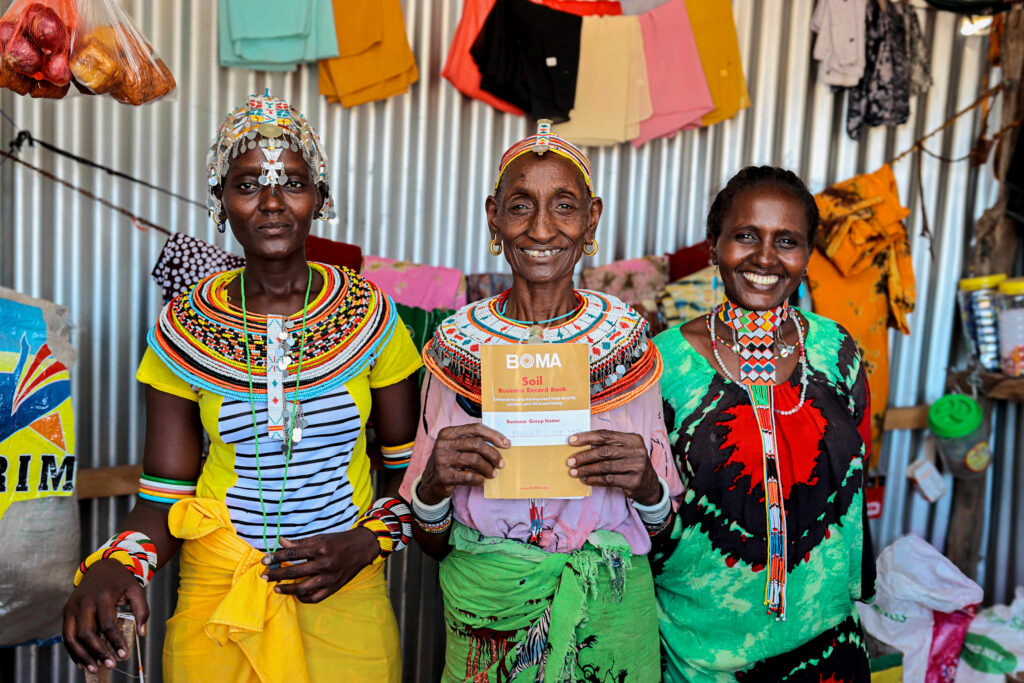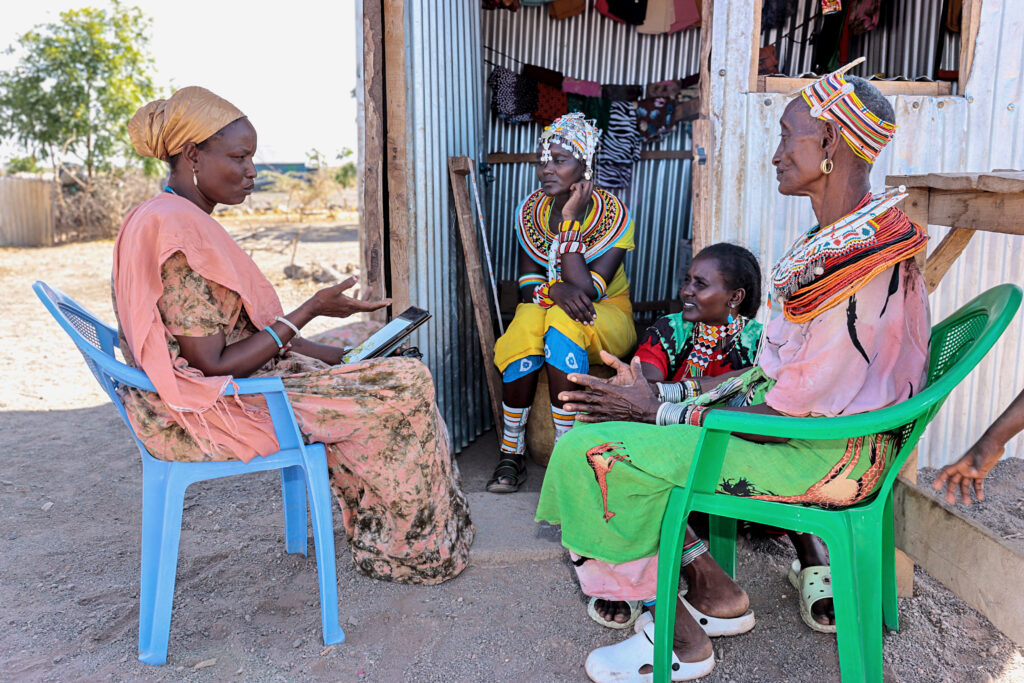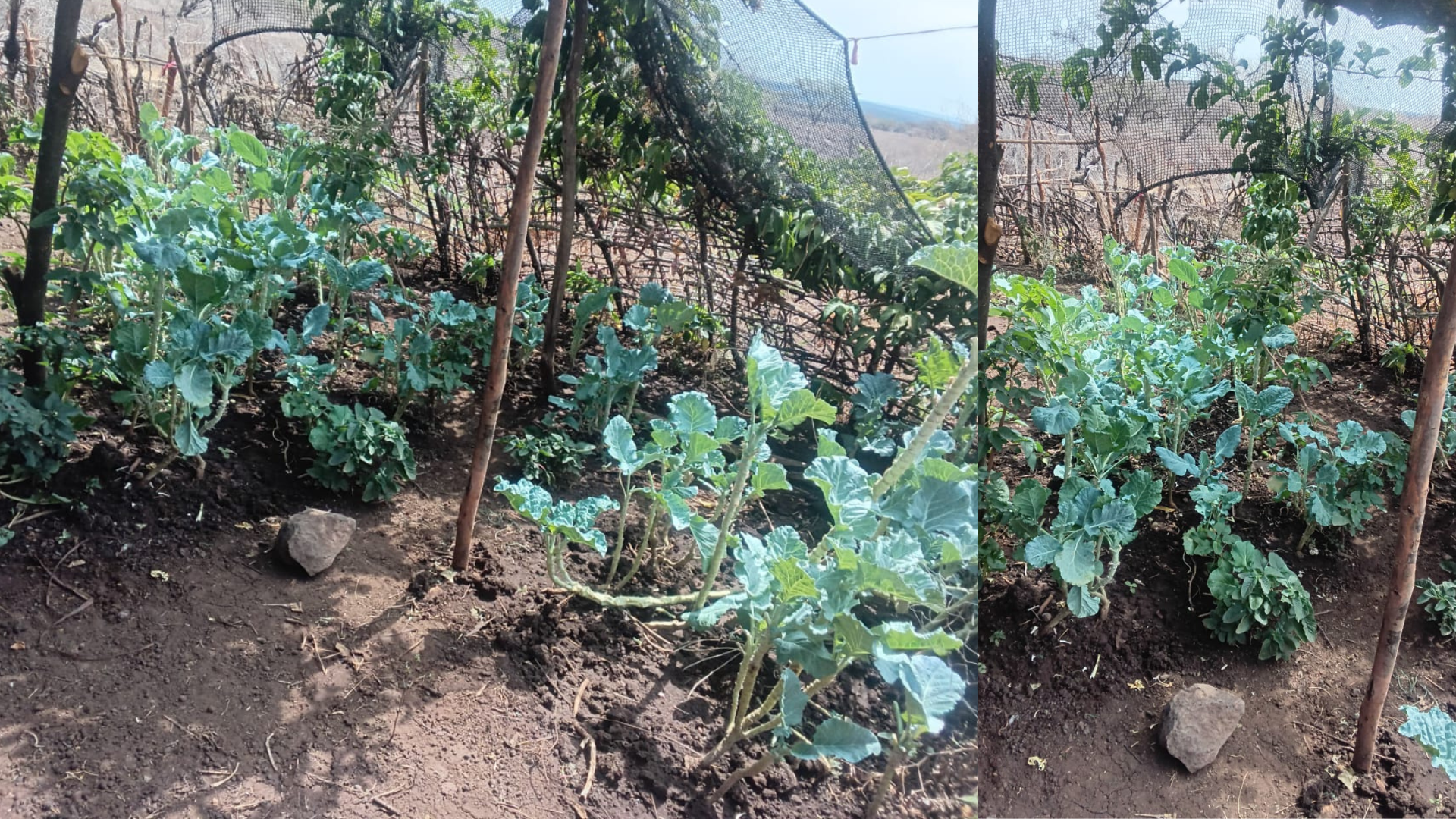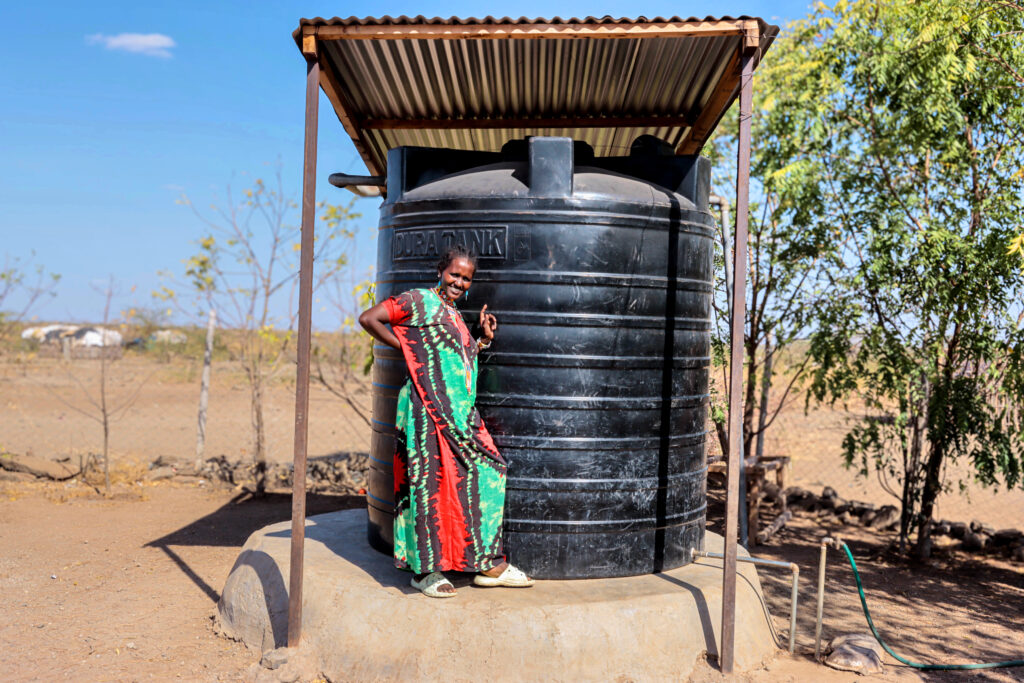
From Left to Right: Pusiko Kochale, Lydia Naigoria and Ntiriwan Learapo.
In Ongeli Village in Loglogo, Marsabit County, three women have turned hardship into hope. For years, hunger was a daily companion and worry never left their homes. “Before this program came to help us, we were very poor,” says Ntiriwan Learapo. “Sometimes we would not get anything to eat and we would sleep hungry.”
When the Sustainable Outcomes and Improved Livelihoods (SOIL) Program, supported by The Light Foundation, reached Ongeli, things began to change. The program helps families in the drylands of Africa build food security, nutrition, and livelihoods that can withstand the changing climate. It begins with one simple truth: before families can grow financially, they must first have enough to eat.
For Ntiriwan and her two business partners, Lydia Naigoria and Pusiko Kochale, that truth became the foundation of a new beginning. “They gave us money to start a business, and right now our children eat well and all kinds of food,” says Ntiriwan. “We have a kitchen garden and we no longer go to bed hungry.”
Lydia remembers what life was like before. “Life was hard before hard,” she says, shaking her head. “All I knew was to sell firewood. If my child wanted something for school, I had to sell firewood. In the past I used to run around borrowing whoever I can and most times I would not get anything. Right now, the people that I used to borrow from, now borrow from me.” She smiles gently.“My life before and now is like day and night. I am independent because I have all that I need.”
Pusiko nods. “In the past we used to struggle going out to fend for our children. You would wake up and look for something to do, wash people’s clothes or sell firewood. But ever since we started our own business, we have become self-reliant. We called our business Morunyo because it means we will keep moving forward and there is no going back.”
Through SOIL’s support, the three women received business training, seed capital, and mentorship to start a small kiosk stocked with daily essentials; rice, flour, soap, and cooking oil. “The greatest enemy to killing a business is giving out too much credit,” says Ntiriwan firmly. “We learned to record what we sell, what we buy, and how to manage our profits.” Lydia adds, “In the past I did not know a thing about business. Now I know which goods move fast and what to stock more of. Working together has made us stronger.”
Their success did not come without guidance. The women often speak fondly of Jane, their BOMA Mentor, whose monthly visits helped shape both their business and confidence. “Our teacher Jane has taught us so much,” says Pusiko. “She comes every month and checks how we are doing. She has taught us about business, how to eat well, and how to take care of our children.” Lydia adds, “From her trainings, we have learned how to plan, save, and keep our business going.” Through mentorship, they learned that the success of a business depends on discipline, teamwork, and patience, not only on selling goods.

BOMA Mentor Jane Naimirdik guiding Morunyo Business Group during a mentorship session in Ongeli Village.
But even with these gains, life in Ongeli remains far from easy. The women face some challenges. “In the kitchen garden, our biggest challenge is the pests that attack our vegetables,” says Ntiriwan. “Sometimes they stop the vegetables from growing well.” The water supply also comes only two or three times a week. “When the tank has water, we store it well,” she explains. “Even when we stay for a week without water, we use what we have carefully to keep our vegetables alive and water our trees.”

Morunyo’s Kitchen Garden
Business too comes with its lessons. “We have learned that kindness must go hand in hand with wisdom,” says Lydia. “If you give out too much credit, your business can easily die.” Pusiko adds, “We work in turns so the shop never closes. Working as a group is good because there’s always someone to look after the business.”
The impact of their efforts shows most clearly in their homes. “Right now we eat three times a day,” says Ntiriwan proudly. “Our overall health has improved and so has our children’s health.” Lydia adds, “These days we eat eggs, chapati, and chicken. We never used to know the importance of fruits like mangoes and watermelon, but now we eat them often. I am very healthy now, and even when I walk, I can feel my legs are stronger, that is because I eat well.” Pusiko smiles as she adds, “We now even know how our children ought to eat. In the past, we didn’t know the importance of giving things like eggs to our children. Now we understand the importance of a balanced diet.”
Community Health Promoters visit regularly to check their children’s growth and health. “They come and help deworm our children,” says Lydia. “When we use the Mid-Upper Arm circumference (MUAC) tape and see yellow, we take the children to the health center,” adds Ntiriwan. “When your child is healthy, it makes you feel so good.”
Their savings group has become their safety net. “I am so proud that we have a savings box where we keep our money,” says Lydia. “If my child has an issue at school, I don’t have to worry. I go to the Savings Group and they give me money.” From her profits and savings, Ntiriwan took a loan to buy a 5,000-litre water tank for KES 33,000 (Approximately 255 USD). “When people look at my compound, they now see a nice compound with many trees,” she says, smiling. “I have planted 54 trees all around. In the past, we never used to grow trees because we never saw their importance. My neighbor saw my trees and planted hers too.”

Ntiriwan Learapo stands beside the water tank she purchased
Still, these women know they are not done yet. “If we stick together as a team and avoid giving too much credit, I am certain that we will go far,” says Ntiriwan. “We will keep going together,” adds Pusiko. “In future we each plan to have our own kiosks.” Lydia’s heart, however, remains with her community. “We know what it is like to not have, so as a group we will never turn down anyone who doesn’t have food. We will share what we have with them.”
As the sun sets over Ongeli, the women of Morunyo Business Group sit outside their kiosk, surrounded by trees they planted and the sound of their children laughing as they play nearby. “Thank you for giving us money to start a business,” says Ntiriwan. “Thank you for giving us knowledge to run it. We are hopeful that we will keep going.” Lydia smiles and sums it up best. “We now feel like we are people.”
From hunger to plenty, from selling firewood to owning a flourishing business, these women have rewritten their story. What began as a project has become a promise. A promise rooted in the spirit of Morunyo, which means never going back. For Ntiriwan, Lydia, and Pusiko, it is the name of their business, and a declaration of who they have become and how far they are determined to go.









